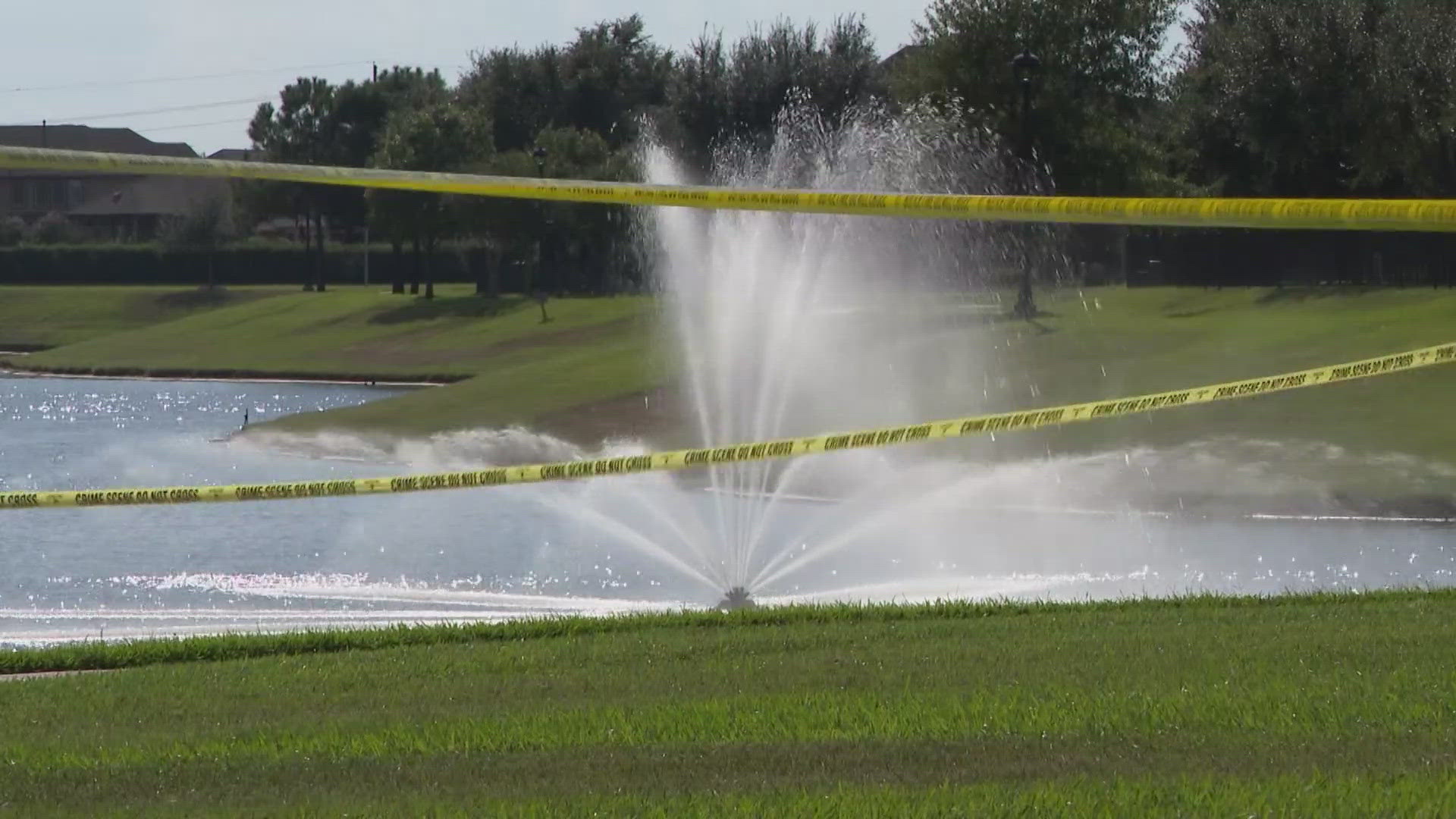HOUSTON — Three Houston-area children with autism have wandered away from their homes and drowned this summer.
The most recent case happened on Sunday, Sept. 22, in the Cypress area. A 5-year-old boy was found in a retention pond after he was reported missing near a neighborhood near Fry Road and West Road, Harris County Sheriff Ed Gonzelez said.
On Sept. 18, a 7-year-old boy drowned in a northeast Harris County swimming pool. The Harris County Precinct 4 Constable’s Office said the victim was pulled from a pool in the Humble area. The victim's mother told investigators he was being watched by an older brother while she ran an errand. The mother returned home and discovered her younger son was missing.
And in Fulshear, 12-year-old Aisha Adebayo was pulled from a neighborhood lake on June 18 following a desperate search by dozens of community members.
According to the National Autism Association, children with autism are 160 times more likely to die from drowning because they're often attracted to water but don't know how to swim.
Parents should have layers of safety measures in place but the biggest thing is getting swim lessons.
"These tragedies happen to good parents all the time," Texas Swim Academy owner Katherine McMorty said.
McMorty said she's seen too many tragedies. She said it's not just about teaching kids how to swim.
"Survival swim lessons -- knowing how to independently roll over, how to get their face out of the water almost as reflexive," she said.
Even non-verbal kids can learn how to swim.
"We must meet these children at their level. Some of them may be non-verbal, may not be able to communicate in traditional methods and manners," YMCA aquatics director Dillon Butler said.
You can also put up a fence around your pool or install splash alarms. There's even a bracelet that can alert you if your child goes into the water.
Autism experts believe some kids could be attracted to water.
"Children with autism are over-sensitive to certain things. It could be touch, smell ... the senses. Sensory overload is common. It could be as simple as the soothing sound of the water -- the peacefulness of the water -- we don't really know to be honest," Hope for Three founder and CEO Darla Farmer said.
Experts suggest you warn your children about the dangers of getting in open waters unsupervised. You should also make sure you have a good home alarm system so you can be alerted if they try to wander off.
Special interior combination locks sold online can provide another level of safety. They have a 10-digit code to keep kids inside.
"I have three kids with autism, one of them wanders away from the house or tries to 'elope' all the time so he can get to a local lake nearby," Former KHOU 11 employee Sheletta Brunbridge told us. "Those locks are the only thing that have kept my autistic child alive."
Brunbridge is teaming up with the Fort Bend County Sheriff's Office and Amazon to give away 100 locks this weekend in Richmond. Parents or caregivers of children with autism can get their free lock at the #SpreadLoveWithLocks event from 10 a.m. to noon at the Gus George Academy.


More autism, water safety tips
- Children with autism will often go straight to water regardless of temperature or type.
- Even if your child does not seem to like bathtime or swimming at the pool, natural water sources may be perceived differently. These include ponds, lakes, fountains, rivers, canals and even wastewater.
- Use social stories to educate them about water safety, trusted adults, and to never walk away from a trusted adult or enter water alone. You can also use visual schedules to help demonstrate when it’s time for water play or swimming.
- Take every precaution to prevent wandering/elopement. Visit the wandering prevention page for tips and resources.
- Teaching your child how to swim can help lower risk, but does not eliminate risk, so it’s important to stay vigilant.
- If you own a pool, fence your pool and use gates that self-close and self-latch higher than your children’s reach. Remove all toys or items of interest from the pool when not in use.
- Neighbors with pools should be made aware of these safety precautions and your child’s tendency to wander.
- If your child with autism is missing, always search nearby water first.

